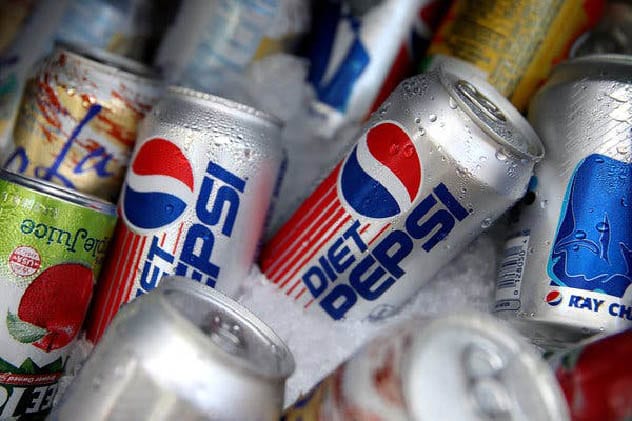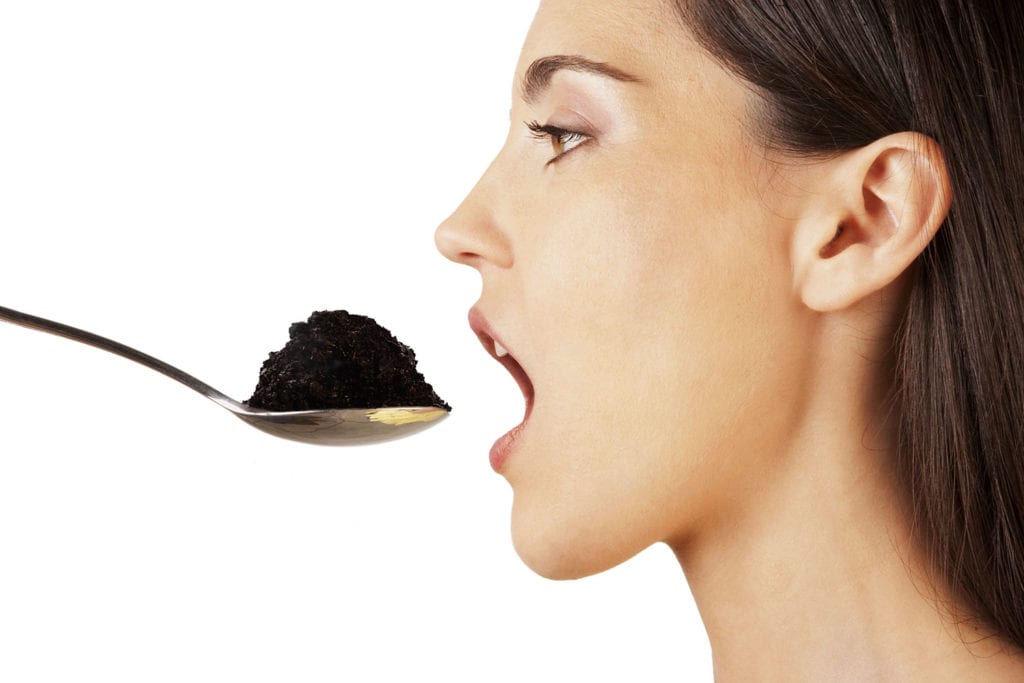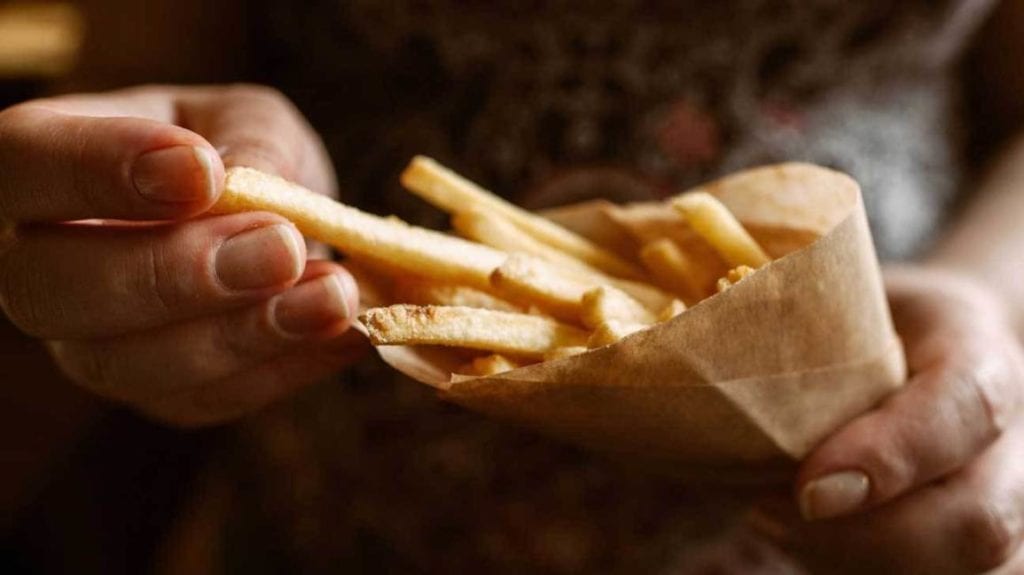 Politics
Politics  Politics
Politics  Humans
Humans The 20th Century’s 10 Most Famous Centenarians
 History
History 10 Influencers Who Lived Centuries before Social Media
 Miscellaneous
Miscellaneous 10 Ancient Etiquette Rules You Never Knew Existed
 Our World
Our World Planet Earth’s 10 Most Hardcore Natural Creations
 Movies and TV
Movies and TV 10 Times Twin Movies Competed with Each Other
 The Arts
The Arts 10 Masterpieces Plucked from the Artist’s Subconscious
 Crime
Crime 10 Fascinating Facts about Rikers Island
 Pop Culture
Pop Culture 10 Things You Might Not Know about Dracula
 Weird Stuff
Weird Stuff 10 Everyday Activities That Were Once Considered Illegal
 Politics
Politics 10 U.S. Presidents Who Cheated on Their Wives
 Humans
Humans The 20th Century’s 10 Most Famous Centenarians
 History
History 10 Influencers Who Lived Centuries before Social Media
Who's Behind Listverse?

Jamie Frater
Head Editor
Jamie founded Listverse due to an insatiable desire to share fascinating, obscure, and bizarre facts. He has been a guest speaker on numerous national radio and television stations and is a five time published author.
More About Us Miscellaneous
Miscellaneous 10 Ancient Etiquette Rules You Never Knew Existed
 Our World
Our World Planet Earth’s 10 Most Hardcore Natural Creations
 Movies and TV
Movies and TV 10 Times Twin Movies Competed with Each Other
 The Arts
The Arts 10 Masterpieces Plucked from the Artist’s Subconscious
 Crime
Crime 10 Fascinating Facts about Rikers Island
 Pop Culture
Pop Culture 10 Things You Might Not Know about Dracula
 Weird Stuff
Weird Stuff 10 Everyday Activities That Were Once Considered Illegal
10 Bizarre Addictions You Know Someone With
We’ve all heard stories of people who are addicted to eating sofa cushions or bathing in bleach. These are far from the norm. It turns out that there’s plenty of strange addictions that are far more common. So common, in fact, that the chances are good that you know people that have an actual physical, mental, or emotional dependence on these things.
See Also: 10 Things Everyone Gets Wrong About Addiction
10 Skin Picking

Everyone does it, but some do it to an extreme. Those who become addicted to skin picking can cause permanent damage to their tissues and nerve endings. Repeated digging, picking, or rubbing certain parts of the body is called Excoriation Disorder and often stems from a belief that the individual is trying to remove something they see as a blemish. In extreme cases, it can create social or occupational difficulties for the person when they develop open sores and even scars.
9 Tanning Addiction

Frequent tanners have been shown to display signs of addiction to their weekly and twice-weekly trips to the tanning salon—and it’s for more reason than the social belief that someone who is tan is more attractive. Tanning beds give off UV rays, which increase feelings of happiness and contentment. While prolonged exposure to UV rays is also linked to an increased chance of skin cancer, it’s also what keeps us happy in the summer and depressed in the winter. Those who make a habit of tanning can very quickly become addicted to the endorphin-producing activity.
8 Diet Addiction

Following recommended dieting routines can be setting you up for addiction. A healthy diet results in gradual weight loss over time, necessitating a prolonged practice that makes dieting a habit. While a healthy lifestyle isn’t bad, it can be if the diet is less than reputable. Dieting can also trigger a chemical change in the body, promoting a desire to keep that sensation going longer than necessary. This may lead to an unhealthy amount of weight loss. Social pressure to be thin and look a certain way can also add to the addiction.
7 Diet Soda Addiction

At first glance, diet, sugar-free soda can seem like a safe way to get a caffeine fix, but that’s exactly why it’s likely to become addicting. For those whose preferred method of caffeine intake is diet soda, it can be easy to tell themselves that they’re not consuming any calories like there are in regular soda or a double-espresso-caramel-frappuccino with whipped cream. It’s that sense of the “all right” that feeds the craving. Diet soda is also often used in place of an addiction the person is trying to quit, such as smoking. The addictive behaviors are simply transferred onto the new substance, leading people to drink gallons of the stuff every day: all guilt-free.
6Drinking Blood

With vampires all the rage, it’s not really surprising that some people might delve into this aspect of the vampiric nature. But some take it to the level of addiction. Some people might prefer to mix some human blood (from a few trusted donors) in with their evening meal or as a mixer to their favorite alcoholic beverage, but some have taken the addiction to the extreme. A man in Turkey was arrested after attacking strangers when his own blood wasn’t enough to satisfy his thirst.
5Eating Dirt

Eating dirt and other earthy materials such as rocks and chalk is so common that it has its own name – geophagia. It is classified under the broader term of Pica or eating items with no nutritional value, such as paper, coins, buttons, and even feces. Geophagia can begin with various causes. In some cultures, it’s thought that eating light-colored dirt will cause the skin to lighten and become more attractive. In other cases, it has been associated with iron deficiency and is thought to be a compulsion to restore vital minerals to the body. This addiction has even been mentioned in ancient Greek texts.
4 Shopping Addiction

We probably all know someone that we’d consider to be a “shopaholic.” However, this term is used loosely, and for some people, their shopping habits can become a more serious and debilitating problem. Oniomania, also known as Compulsive Buying Disorder (CBD), is a behavioral disorder characterized by an obsession with spending money and an insatiable urge to buy things, typically resulting in adverse consequences. While the disorder is often overlooked, it can leave people in financial chaos. The shopping addict has to buy things that they neither need nor want. They will spend hour after hour every day shopping and buying with no regard to the cost or growing debt. They hide purchases from other family members and friends out of shame, but they can’t stop the addiction. If they don’t hide a purchase, they will probably lie about what they paid for it. Shopping addiction may stem from feelings of inadequacy, depression, or other negative thoughts and can usually be treated with medication, therapy, and group discussions.
3Sex Addiction

Sex addiction doesn’t have to mean being addicted to just the act. It can also mean being preoccupied with sexual thoughts or obsessions with other behaviors, such as watching pornography. When a person becomes so obsessed that it damages their personal relationships and doesn’t allow them to function daily without being plagued by these constant thoughts, they may consider a recovery program. Like the program followed by alcoholics, sex addicts can enter into a twelve-step program that helps them turn away from their preoccupations.
2 Thumb Sucking

Thumb sucking in babies is quite common, but what happens when the behavior continues into adulthood? Occasionally a habit that some fall back on when anxious or irritated, thumb sucking for some can be just as comforting in adulthood as it was in childhood. Some say that sucking their thumb gives them a feeling of calm, but the addiction can mean something very different for others. It’s also a gesture tied to oral sex, and it was so anti-social that even Shakespeare took a well-known crack at it.
1Food Addictions

Food additions might seem a little questionable, but it’s been found that certain chemicals in certain foods—such as the sugars in candy and chocolate—can make the pleasure centers of the brain tingle just as much as nicotine or alcohol. Not simply a matter of eating too much, food addiction usually revolves around certain types of food and the changes that it triggers in the mind and body. Someone who is otherwise healthy can struggle with a food addiction to, say, chocolate. The behavior turns into an addiction when they cannot control how much they eat, when thoughts of the food distract them from other tasks, when they suffer from anxiety or depression after eating, or when deprived of that food.
For more lists like this, check out Top 10 Legal Addictions, and Top 10 Modern Human Addictions








